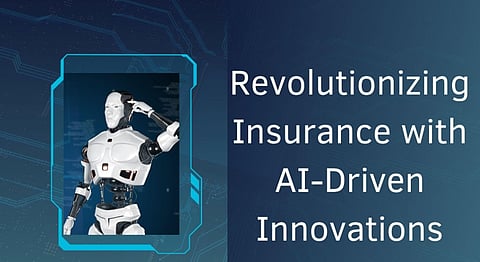

This is the world of digitalization where artificial intelligence (AI) is reshaping the game for the insurance industry, marking a new chapter in efficiency, accuracy, and customer-centric solutions. Bhaskara Srinivas Beeraka, an AI integration thought leader, discusses how these technologies have the potential to transform in his latest technical guide. This article explores the innovative developments that are making operations streamlined, risk assessment better, and customer experiences different in the insurance sector.
Underwriting is perhaps one of the deepest impacts that AI has made. It is a system wherein machine learning algorithms are applied on large data sets to analyze the risk at a real-time and dynamic level to calculate the premium. With telematics and actuarial models, the precision of insurers is unparalleled; the processing time drops by 70%, and decision time is reduced to hours rather than weeks. The operational throughput is improved not only in that aspect but customers also receive better tailored and transparent policies.
Traditionally, computer vision technology had revamped claims processing to be easy and fast. This AI uses very advanced versions of CNN to identify damage and measure the assessment by different types of angles or lights. Due to image automation, it goes for as much as 98% accuracy regarding assessing the loss while claims are being processed up to 95% faster, making settlement go a little more efficient, along with raising consumer satisfaction.
Fraud detection is one of the areas where AI has been proven to be of extreme value. The traditional methods fail to identify complex and changing fraud patterns, but AI-based systems are highly effective in real-time analysis of structured and unstructured data. These advanced solutions evaluate over 300 variables per claim with an impressive accuracy rate of 99.5%. This has led to a 60% reduction in fraudulent payouts while keeping false positive rates below 0.05%. AI fraud detection, being a means of continuous learning, adjusts to new schemes and provides protection to the insurer while increasing customers' confidence.
Predictive analytics frameworks have changed the nature of insurance entirely by transforming the way claims are managed and risks are assessed. These systems, using advanced algorithms, process petabytes of structured and unstructured data with sub-millisecond latency, allowing real-time decision-making and more accurate risk evaluations. This has brought about an incredible 85% reduction in the time taken for claim settlements, thereby greatly enhancing operational efficiency and customer satisfaction. Predictive models also allow insurers to predict what customers will need, thereby giving them personalized proactive solutions that increase trust and, in turn, long-term loyalty. Given such early identification of potential risks and opportunities, insurers would minimize their losses and even smoothen the operations of businesses. Second, these innovations bring better customer experiences but, for insurers, offer the needed cutting edge for success in a changing dynamic marketplace that is information-intensive.
The benefits of AI are transformative; however, in the insurance industry, its application poses challenges such as data management, system integration, and model transparency. An insurer processes an enormous amount of data every year, which demands highly scalable distributed processing systems with both scalability and efficiency. Current solutions like microservices and cloud-native architectures alleviate the complexity associated with integration. It makes the systems run smoothly, minimizes downtime, and increases reliability of systems. Transparence is another key variable that is ensured through explainable AI frameworks which make AI decision-making understandable for stakeholders. In addition to making it comply with strict regulatory norms, it gives customers and partners a sense of trust. And all these will help insurers tap into the complete potential of AI in the insurance industry.
Beyond operational efficiency, AI transformed the customer experience in the insurance industry and defined new standards of service delivery. Automated chatbots can answer simple questions within a few seconds to ensure faster responses and better accessibility for customers. AI-driven personalization has also revolutionized the engagement process with tailored products and services that better align with personal preferences, ensuring stronger relationships and higher customer retention rates. However, AI's enhanced ability to spot data patterns also has greatly helped cross-selling by identifying the complementarity of various offerings. Cross-selling has never been this smoother with AI while improving service quality and growing businesses and satisfying customers.
In short, Bhaskara Srinivas Beeraka concludes that it is a transformational change through AI integration for insurance companies by changing traditionalism and unlocking possibilities. These developments revolutionize the most critical areas: underwriting, claims processing, and customer interaction. Efficiency and innovation are improved through AI-based decision-making and customer experience optimization. For firms looking to remain competitive and future-proof in this dynamic industry, embracing AI-driven strategies is no longer optional; it is essential for sustained success.
